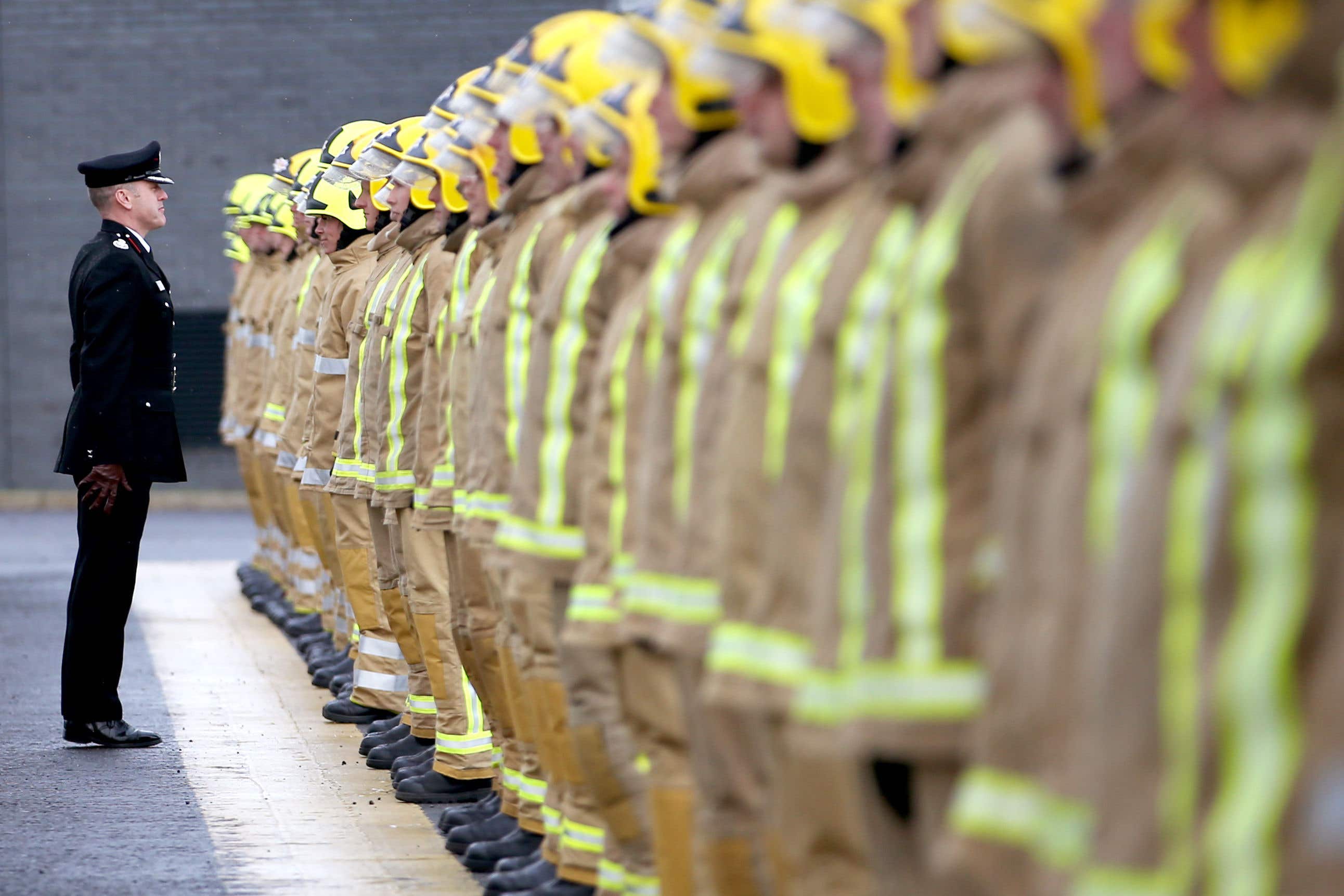Firefighters in Scotland to strike for first time since 2003
The Fire Brigades Union said they have given the Government and employers 10 days to come back with an improved pay offer.

Your support helps us to tell the story
From reproductive rights to climate change to Big Tech, The Independent is on the ground when the story is developing. Whether it's investigating the financials of Elon Musk's pro-Trump PAC or producing our latest documentary, 'The A Word', which shines a light on the American women fighting for reproductive rights, we know how important it is to parse out the facts from the messaging.
At such a critical moment in US history, we need reporters on the ground. Your donation allows us to keep sending journalists to speak to both sides of the story.
The Independent is trusted by Americans across the entire political spectrum. And unlike many other quality news outlets, we choose not to lock Americans out of our reporting and analysis with paywalls. We believe quality journalism should be available to everyone, paid for by those who can afford it.
Your support makes all the difference.Firefighters in Scotland are set to take strike action for the first time in almost 20 years.
Following a ballot for industrial action, members of the Fire Brigades Union (FBU) are set to walk out in an ongoing dispute over pay.
About 88% of members voted in favour of strike action on a 73% turnout, but the FBU said they have given the Government and employers a further 10 days to come back with an improved offer.
Pay is set at a UK level and firefighters have currently been offered a 5% increase, up from 2% offered last year according to the union’s Scottish secretary, John McKenzie.
He said: “The ballot result shows us how frustrated, angry and undervalued our members feel.
“Our members have suffered a £4,000 real-terms pay cut since 2010 under this Tory Government. That’s a 12% erosion of their pay over that 12, 13 years and it’s just not good enough.
“They’ve had enough.”
Mr McKenzie said firefighters had been “really patient” while attempting to meet an agreement.
The implications on services are severe and they are severe for a reason. It takes three years to train a firefighter and our members have many years of experience
He added: “They received a 2% pay offer back in June last year and it took three months for that offer to be improved.
“We’ve been at this for the best part of seven or eight months.”
Mr McKenzie said no industrial action would take place until a meeting with employers was held on February 8.
“The implications on services are severe and they are severe for a reason. It takes three years to train a firefighter and our members have many years of experience.
“That can’t be replicated on a couple of weeks’ training. If we don’t receive an improved offer, they will be withdrawing their labour and the skills and experience of our members are impossible to replace.”
Responding to the strike ballot results, Stuart Stevens, interim deputy chief officer of the Scottish Fire and Rescue Service (SFRS), said the service “wholly supported” a pay increase for firefighters and recognised their right to strike.
He reassured the public that any emergency where there is a risk to life or clear sign of fire will be responded to during any strike action.
He added: “The FBU represents many firefighters in Scotland and therefore any strike action will have an impact on our emergency response.
“As a fire and rescue service, we have a legal and moral duty to provide an emergency response to the communities of Scotland, including during periods of industrial action.
“I want to assure the public that we are developing contingency plans to enact during any strike and we will respond to any emergency where there is a risk to life or a clear sign of fire.”
Elena Whitham, Scottish Government community safety minister, said it was “disappointing” the FBU had voted for strike action.
She said: “At this point, we would encourage continued negotiations through the well-established collective bargaining arrangements.
“The Scottish Fire and Rescue Service (SFRS) has comprehensive contingency plans for industrial action based on making the best use of the resources available to keep communities safe.
“In addition, we are working with SFRS to consider appropriate military assistance as part of its business continuity arrangements in the event that negotiations fail.”